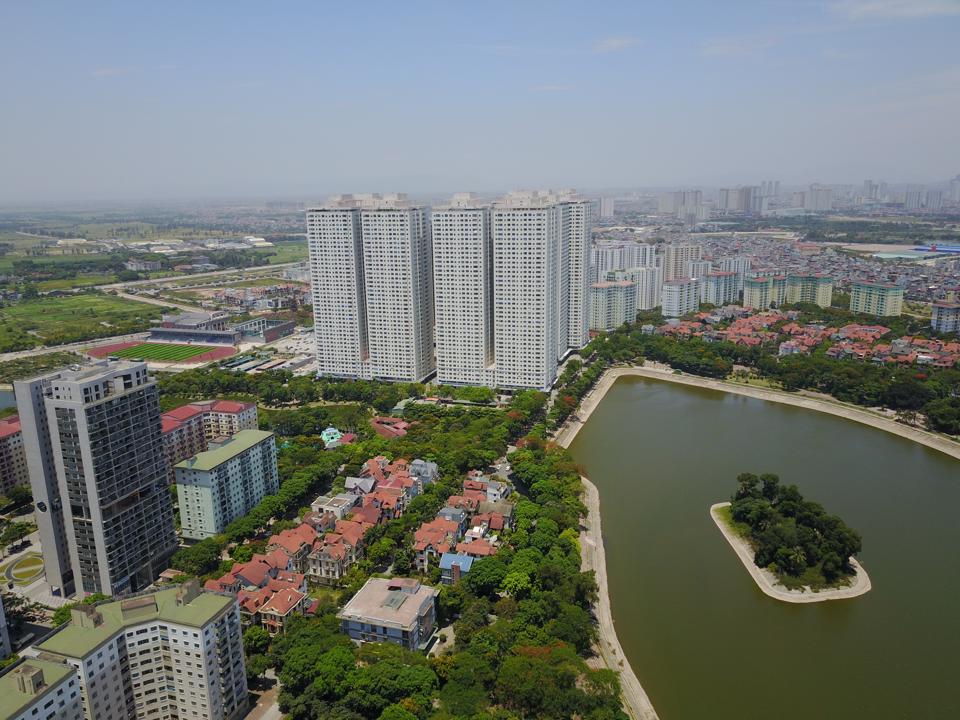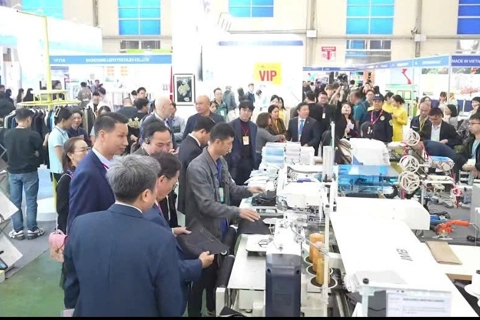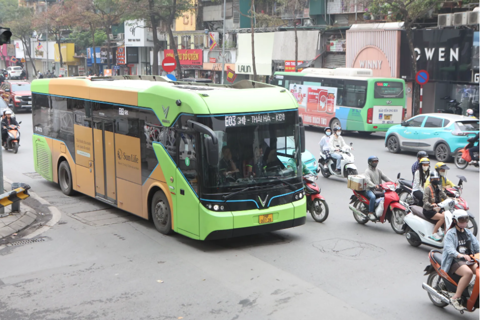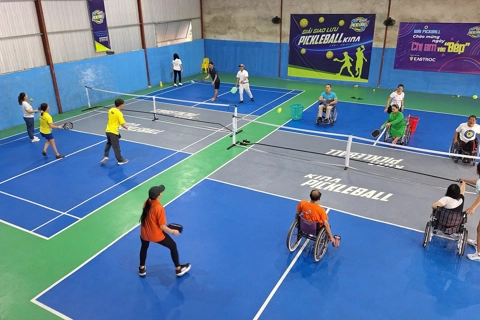Housing prices in Hanoi continue to rise
Local experts warn of housing bubbles and urge stricter regulations to ensure the capital city's sustainable realty market.
Prices of housing segments in Hanoi continue upward trends so far this year, as shown by statistics from trading platforms and foreign real estate agencies.
The prices of apartments in the first half of 2022 rose 13% on year though demand fell by 32%. Meanwhile, the prices of villas between January and June rose 37% from the same period last year despite a fall in transactions of up to 72%.
According to a report on Hanoi’s real estate market released in July 2022 by www.batdongsan.com.vn – the prestigious real estate transaction platform, apartments remained attractive to homebuyers. The prices of apartments of all segments (affordable, mid-end, and high-end) rose 6-13% on year, compared to 4-8% in Ho Chi Minh City, according to the platform’s Deputy Director Nguyen Quoc Anh.
Surging prices are attributed to Hanoi’s well-planned infrastructure and transport. In addition, demand for apartments in the city increased by 7% on year and the sentiment has continued rising over the past four years.
For example, the prices of apartments in Cau Giay and Thanh Xuan districts rose to an average of VND45 (US$1,900)-VND60 million ($2,500) per square meter (sq.m) currently from VND30 ($1,288)-VND40 million ($1,700)/sq.m last year.
Notably, the price hike has been recorded in areas like Gia Lam, Hoai Duc, and Dong Anh outlying districts. Accordingly, apartments are priced at VND30 million ($1,288)/sq.m on average from VND18 ($770)-VND20 million ($850)/sq.m in 2021.
Real homebuyers
Nguyen Thi Nga, a teacher living in Hung Yen Province, about 60km Northwest of Hanoi, said she felt shocked by the prices of apartments in Hanoi after 10 years of moving to the province, which is also her hometown for her teaching career. “The prices of apartments in the capital city surprised me when a real estate broker showed me a few days ago. It’s unbelievable that the prices tripled those in the same place that my family wished to buy a decade ago,” Nga told The Hanoi Times.
According to the experts, the prices of apartments in Hanoi keep increasing due to thin supply and surging demand, including those who are seeking accommodations for their children following tertiary education in the capital city. In reality, Nga’s family wants to buy an apartment for her eldest daughter who is a first-year student at the National Economics University located in downtown Hanoi.
Having the same demand for education purpose, Nguyen Duy Duong from Bac Giang, 50km North of Hanoi, shared with The Hanoi Times that two years ago his family bought an apartment in Cau Giay District for their daughter when the kid started high school at Foreign Language Specialized School – Vietnam National University, Hanoi.
The 70-sq.m apartment cost them VND2.3 billion ($98,000) in 2020. But the prices now reach VND3.8 billion ($162,000) for the same apartment. “I don’t think the prices increase by 65% after two years in such an area where apartment buildings are abundant,” Duong said.
| Apartment buildings in downtown Hanoi. Photo: Pham Hung/The Hanoi Times |
Nguyen Van Hung, a broker at Nam Cuong Corporation – one of the biggest construction companies in Vietnam – said the prices of apartments of all segments (affordable, mid- and high-end) have reached a new level, in which, those priced below VND2 billion ($85,000) are only a few across Hanoi. “It’s hard to find, with that rate, an apartment in an urban area with good design and infrastructure in the city’s metropolitan area,” Hung spoke with The Hanoi Times on phone.
Talking about the main customer of the apartments, Hung said up to 90% of the apartment owners are young people who are newly-wed couples, young families, students, and those who have found high-paid jobs.
Concerning the financial sources, he said about 30% of homebuyers in apartment projects seek loans from commercial banks. A good partnership between real estate developers and banks together with easy transaction procedures at banks have enabled the homebuyers to choose this kind of payment, mainly young couples, he noted.
It’s been almost three years since the newly-wed couple Tran Van Trung and Nguyen Minh Hang moved to their new home which is an apartment in The Pride urban area, Ha Dong District, but the financial burden persists. “We are paying interests which account for one-fourth of our income,” Trung shared with The Hanoi Times, disclosing their income of about VND40 million ($1,700)/month. “But we are luckier than many others as we can save some, unlike my neighbors who have to pay a lot to interests while raising kids,” Trung added, sharing that he and his wife choose not to have babies in the next two years until the financial burden becomes “less stressful.”
Among homebuyers, Nga and Duong totally afford an apartment in downtown Hanoi thanks to their good financial situation. Nga is running a business on container leasing while Duong earns quite a lot from exporting lychee as his hometown is Luc Ngan, one of the two lychee hubs of Vietnam. Nga and Duong are typical for those who buy houses for use, unlike some who buy for reselling, broker Hung said, adding that those buyers help form the market prices without speculations.
Regarding villas and detached houses, Savills Vietnam said the prices of these housing segments in the first half this year rose up to 67% on year.
In the first six months of 2022, the prices of villas increased by 37%, attached houses by 20%, and shophouses by 22% on year. Notably, the prices of villas currently double that in 2018 while the rates of detached houses increased by 67%, according to Do Thu Hang, Senior Director, Advisory Services at Savills Vietnam.
Experts argued that the thin supply remains one of the reasons together with increasing input costs and stricter regulations on home loans. In addition, speculations have caused the price hike in many parts of the city amid the post-pandemic instability.
The demand for real estate products remains high after the pandemic but the price hike continues despite low liquidity indicating some signs of housing bubbles, according to Nguyen Van Dinh, Deputy Head of the Vietnam Real Estate Association. It requires a better legal framework and activities by the regulators, he emphasized.









